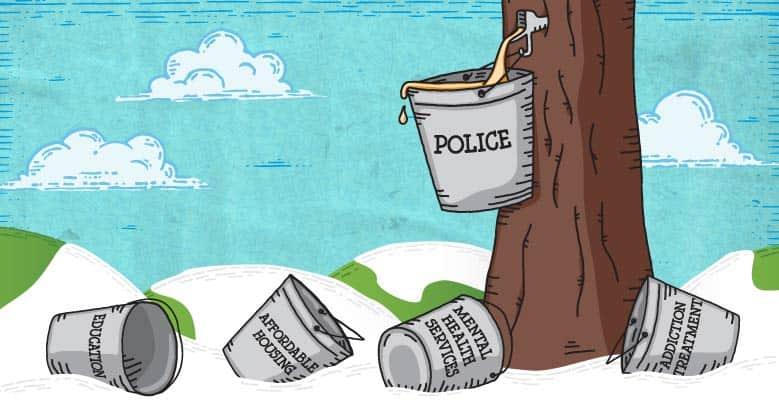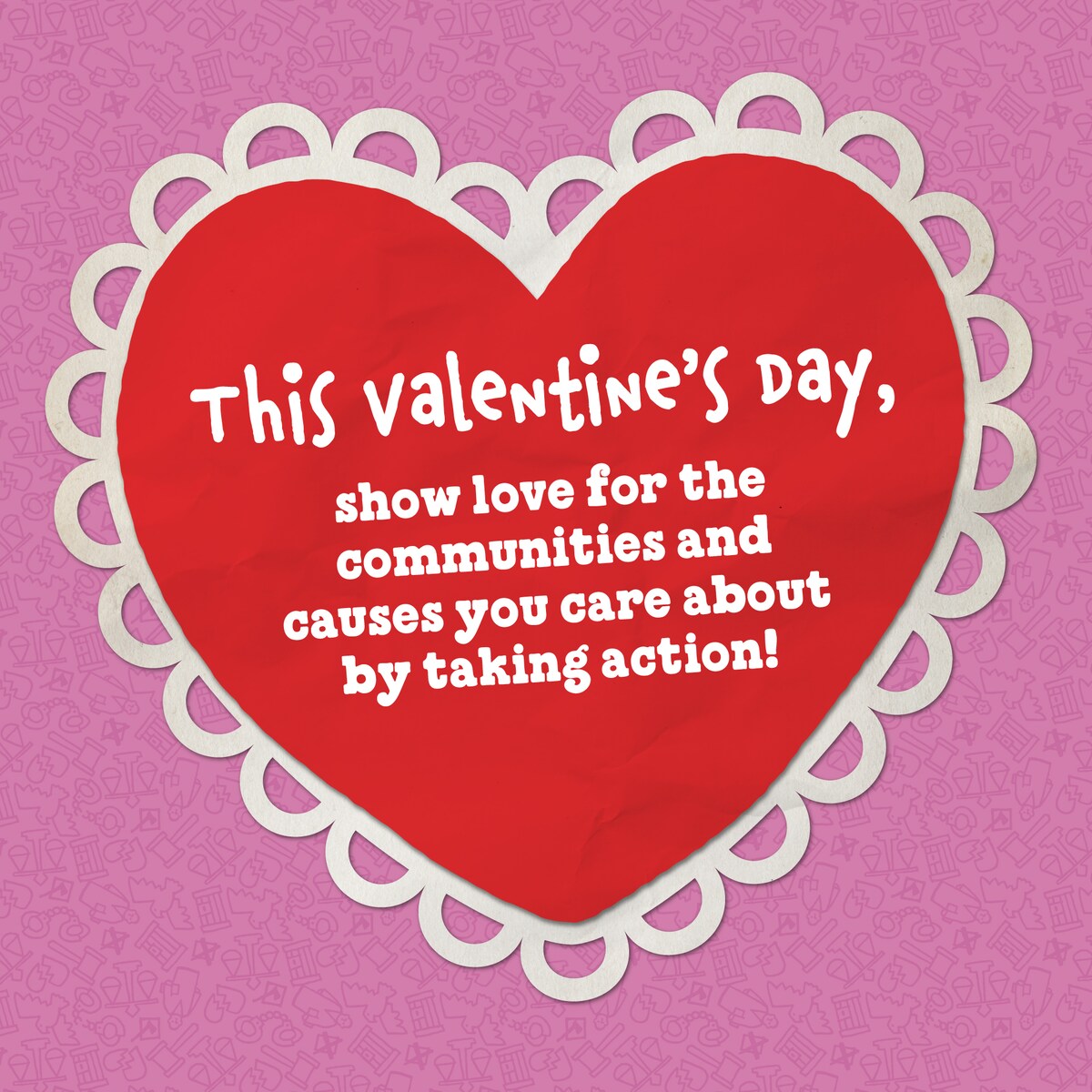March 19, 2021

In the aftermath of George Floyd’s murder by Minneapolis police officers, and the nationwide protests against police violence and white supremacy it sparked, political leaders across America, including in our home state of Vermont, vowed to rethink policing and police department spending.
We pour so much cash into law enforcement in this country—$115 billion a year, substantially more than on things like social services, housing, and parks. Why not take some of that money and invest it in communities instead?
Some cities have begun passing serious reforms to do just that, which is great, but few offer anything close to the kind of transformative reimagining of public safety that’s required. That’s why we wanted to take a closer look at the work being done in our hometown, Burlington, VT, by people like our friends at the Vermont Racial Justice Alliance. We found that it’s the police who are standing in the way of progress.

Take Action Now!
Bold Visions
The huge multiracial crowds that took to the streets all over the country after George Floyd’s murder brought a new kind of energy and determination to the ongoing fight against racial injustice and systemic racism.
There were marches and protests across Vermont too—which, despite its reputation as an open-minded liberal haven, has long struggled with racism and biased police work. Activists in Burlington, our state’s largest city, had been campaigning to transform policing well before the summer’s protests, but now there was a surge of renewed focus and resolve.
Throughout the summer and into the fall, Vermont organizers rallied around three main demands:
- End the use of unnecessary force against Black and Brown people and hold accountable those officers who’ve committed violence
- Make sure all officers use body cameras, and guarantee that the footage will be readily available to the public
- Redirect police department funds to community services
The Numbers
That last part, about taking money from police budgets and using it to fund social service programs and strengthen communities, is exactly what activists all around the country in cities large and small are calling for. That’s what the “defund the police” movement is all about.
Here in Burlington, the police department makes up around 22% of the city’s entire budget, or $17 million a year. That’s a LOT, much more than is spent on other priorities in the 2021 budget:
- $7.9 million for roads and sidewalks
- $4.5 million parks and bike path
- $11.2 million combined on wastewater, stormwater, and drinking water systems
What does $17 million pay for, exactly? We took a look at the Burlington Police Department’s service calls since 2012. Here, like just about everywhere else, police spend very little of their time responding to violent crimes. Most of the calls that come in are for disturbances and other relatively minor incidents. In Burlington, those kinds of calls have been in sharp decline (from 32,825 in 2012 to 23,578 in 2020), yet the bloated police budget doesn’t reflect this. To truly ensure the health and safety of Burlingtonians, we think it’s time to take some of that $17 million and invest in community programs and resources instead.
Impediments to Reform
To that point, let’s take a look at the one kind of service call in Burlington that’s seen a marked increase over the past nine years (from 502 calls in 2012 to 947 in 2020): People experiencing mental health challenges. People in mental duress do not need police officers arriving with guns. They need trained, compassionate mental-health experts. Couldn’t we reduce the amount we spend on traditional policing and use the savings, in part, to hire counselors and other experts to help in areas like mental health, homelessness, substance use disorders, and more?
Activists in Burlington believe the answer to that question is yes. And their marches, rallies, and advocacy got results: Last June the Burlington City Council passed a resolution packed with a variety of needed reforms, including:
- Dropping the number of police officers from 105 to 74
- Shutting down the school-to-prison pipeline by ending the program that puts police officers in schools by spring 2021
- Declaring racism a public health crisis
- Forming a committee to evaluate alternatives for public safety
But then came the pushback: The police officers’ union immediately issued dire warnings about how implementing these plans would put the public in danger. No surprise there: Police unions have lined up as the biggest opponents to reform all over the country. Though the data, as we’ve seen, doesn’t back them up, the unions tell a skewed and scary story of what will happen if cities start thinking about public safety in new ways. Here in Burlington, self-interested prophecies of a lawless downtown appeared to have had the desired effect on the mayor, Miro Weinberger, who this January vetoed another popular proposal passed by the council that would have established an independent community commission to oversee the police.
A New Way Forward
It hasn’t been easy, and it isn’t complete or comprehensive, but change is already underway. We stand with our friends at the Vermont Racial Justice Alliance in calling for a transformation of the Burlington Police Department. They’ve named their plan Operation Phoenix, and we think it could be a model for other cities and towns. Phoenixes, of course, R.I.S.E.:
- Restructuring public safety
- Implementing cultural empowerment
- Securing equal opportunity
- Expanding racial equity, belonging, and inclusion
Here in Vermont and all over the country we must stand together and continue to demand a new approach to keeping people and communities safe and healthy—one that recognizes and protects the right of every single one of us to be treated with dignity and respect. Nationally, we have to keep the pressure on to ensure that the George Floyd Justice in Policing Act becomes law. Take action now.

Recent Articles


